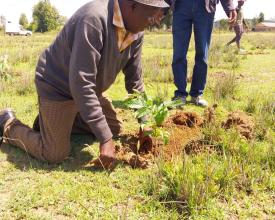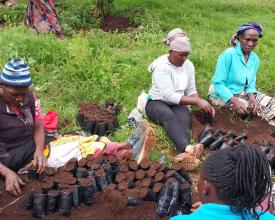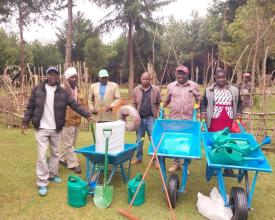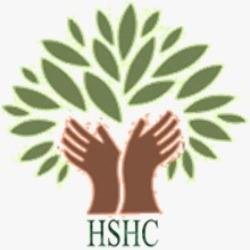
Régénération des forêts indigènes sous l'impulsion de la communauté au Kenya
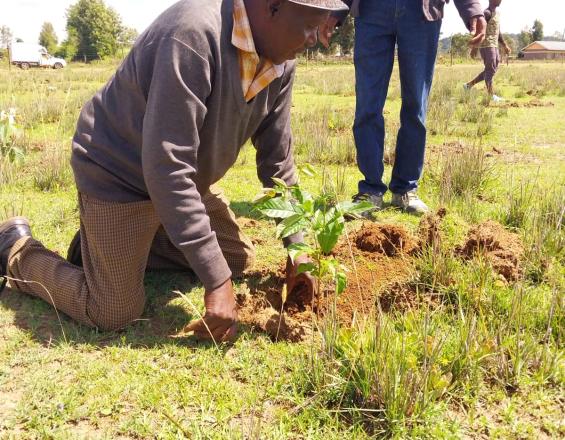
Le Mont Kenya, avec sa biodiversité luxuriante et ses écosystèmes vitaux, est de plus en plus menacé par la déforestation, la dégradation de l'habitat et les effets néfastes du changement climatique. Pour relever ces défis, notre projet, financé par les petites subventions de l'IKI et mis en œuvre par le Help Self Help Centre, se concentre sur la régénération des forêts indigènes à l'initiative des communautés. Cette initiative ne consiste pas seulement à planter des arbres ; il s'agit d'autonomiser les communautés locales et d'assurer la durabilité de l'environnement pour les générations à venir.
Notre solution commence par le cœur du problème : les personnes qui vivent à proximité de la forêt. Ces communautés sont directement touchées par la dégradation de l'environnement et jouent un rôle essentiel dans sa restauration. Nous avons formé plus de 1 300 membres d'associations forestières communautaires (AFC) à des compétences essentielles telles que la gestion organisationnelle, le leadership et la gestion durable des ressources naturelles. Cette formation complète leur permet de participer activement aux efforts de conservation et de les diriger.
Impacts
- Nous avons formé 1 367 membres d'associations forestières communautaires (AFC), sur les 1 500 visés. 786 hommes et 581 femmes ont bénéficié de cet exercice de formation. Les sessions de formation ont porté sur des questions d'actualité telles que la gestion organisationnelle, le leadership, le plaidoyer, les techniques de restauration et de reboisement, y compris la gestion durable des ressources naturelles.
- Les 18 pépinières communautaires ciblées ont reçu une formation sur le regroupement des graines, le classement, le stockage, la propagation, la gestion des pépinières, les compétences commerciales de base et la commercialisation (100 % des formations ont été dispensées).
- Les dix centres de collecte de semences ont reçu une formation en organisation, gestion, compétences techniques, entrepreneuriales et commerciales. Sept centres de collecte ont également reçu une aide en matériaux de construction et en outils.
- Le projet a permis de planter 154 222 arbres indigènes sur les 150 000 prévus. Ce chiffre inclut les 21 321 semis, plantés pour la plupart pendant les pluies de mars/avril 2024, et replantés après avoir échoué à survivre.
